Nicholas Jeffreys, Assistant Director-General for Administration and Management
Within the scope of his post as Assistant Director-General for Administration and Management, Nicholas Jeffreys outlines his vision with regards to a more mobile and agile UNESCO workforce.
Working together as one
My vision for the management and administration function within UNESCO is that of all staff members of Administration and Management Sector working together and communicating effectively with each other, and “customer-focused” in all our work to support the Organization. Functional and geographic mobility will help to achieve that, as once we understand each other’s functions better, we can collaborate more effectively to solve problems. I feel that functional and geographic mobility are particularly important within the administration and management functions – functions that for the most part are readily applicable for mobility.
For the programme sectors, I think that mobility will help the Organization enormously to function as one. UNESCO has a risk of operating in “silos”, each competing for resources and visibility. The more that people can cross from one “silo” to another, the more we will be in a position to foster UNESCO’s identity as one united Organization, with common, shared goals.
Mobility as a key tool to transform UNESCO
I think that the Mobility Programme can help to support other parts of the Strategic Transformation, as we’re looking to make the Organization more efficient, more focused at the country level and more results-focused. Therefore, having more people moving within the Organization and seeing things through a different lens will support all aspects of the transformation.
I would like to emphasize that functional mobility is also important -we don’t just want to focus on mobility for professional staff. Mobility applies for all staff. When staff change functions it’s often to a different department, and therefore the move involves similar challenges, such as learning something new – there are questions to be asked about how things are done, the professional development of learning new skills…there are a lot of commonalities between the benefits of functional and geographic mobility.
A final word?
The mobility process will help strengthen the UNESCO family as a whole. I am confident it will improve communication between offices, which in turn will help field office reform.

